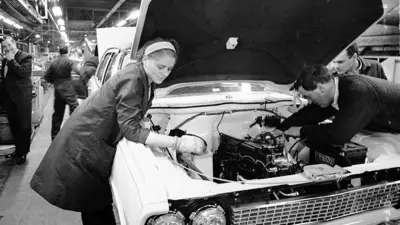We've updated our Privacy and Cookies Policy
We've made some important changes to our Privacy and Cookies Policy and we want you to know what this means for you and your data.
One in six young offenders are back in jail in a month
One in six young offenders are back behind bars within a month, according to the chief inspector of prisons.
Nick Hardwick said just one in three young offenders had accommodation, education, training or an employment placement on their release.
The outcome for young offenders just out of prison was "very disappointing", he said, while calling for more effort to stop them joining a "life of crime".
The government said plans were in hand to "reform" youth justice.
In March this year a two-year study found releasing young offenders into the community without support was a "recipe for disaster".
If criminals were released from secure accommodation and went to live in a flat without any supervision it was "inevitable" they would reoffend, it said.
As a result, a new review was ordered, based on the experiences of a small group of young men who were released from custody and checked up on a month later.
'Unsuitable' accommodation
Only 13 of the 41 young offenders had suitable accommodation and education, training or employment prospects on their release.
Two were completely homeless and one in five were in "unsuitable" accommodation, according to the report.
One man spent the entire month in bed and breakfast accommodation.
Six of the 37 young offenders whose cases were followed up a month later had been sent back to custody and a seventh was on the run, the inspectors found.
Although one in three had education, training or an employment placement to go to on their release only half were still attending a month later.
"Where placements had fallen through, case supervisors felt this was due to unstable accommodation, a lack of family support, the young person's lack of motivation or problems due to the timing of course start dates," Mr Hardwick said.
Key question
Mr Hardwick said: "This report raises a key question - how effective is the resettlement work conducted in custody in terms of the actual outcomes for young people?
"This was not monitored by establishments and our follow-up information highlights the need to look beyond the gate in order to evaluate the effectiveness of resettlement work."
He said social workers' attendance at planning meetings for looked-after children was "poor".
A joint approach between government and external agencies was necessary, he said, adding: "The starting point should be an acceptance that vulnerable young people released from custody are children in need.
"This would go some way towards focusing the joint effort that is needed to prevent them from returning to custody and becoming entrenched at an early age in a life of crime."
In February this year a report by the children's charity Barnardo's said the government could save money if it put more effort into supporting young offenders leaving custody.
Barnardo's says children as young as 13 were caught in a cycle of homelessness and reoffending.
A Ministry of Justice spokeswoman said the government recognised young people in custody were "some of the most vulnerable young people in society and that effective resettlement and support is essential to breaking the cycle of offending".
"Our plans to reform youth justice including proposals to incentivise local authorities to reduce offending and reoffending will be published as part of our sentencing reforms," she said.
Top Stories
More to explore
Most read
Content is not available








